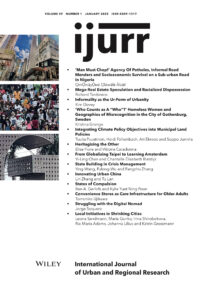The exceptional measures to combat the Covid-19 pandemic have brought great potential for reconfiguring urban governance. To examine such potential, this article presents how the pandemic crisis was managed in Chinese neighbourhoods. Following a statecraft approach and using Shanghai as a case, we show how a citywide lockdown played out on the ground as a joint product of state apparatus and citizens. Drawing on discourse analysis of interviews, policy documents, and news reports, we probe into Shanghai’s contextualized neighbourhood pandemic responses, particularly by emerging neighbourhood voluntary practices in crisis management. We examine how these practices were tactically incorporated into the state’s overall responses to the pandemic through co-production, co-option and mobilization. Instead of co-governance, we argue that the grassroots state orchestrates and steers community participation and volunteerism to reinforce grassroots statecraft and consolidate its role in (post-) pandemic neighbourhood governance. Through exceptional crisis management measures, the state penetrates everyday life. This process has facilitated local state-building in urban neighbourhoods, thereby manifesting, perpetuating, and expanding state-centred governance trends that were established well before the onset of Covid.
Details
Written by:
Ying Wang, Fulong Wu, Fangzhu Zhang
Digital Object Identifier (DOI)
https://doi.org/10.1111/1468-2427.13289
About DOI

